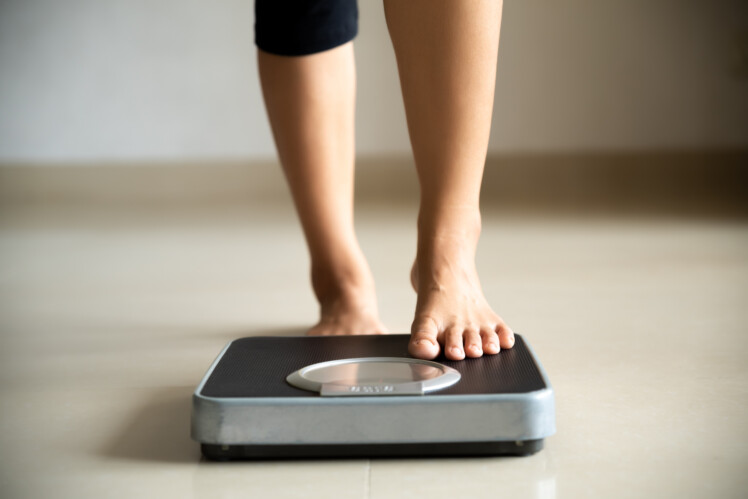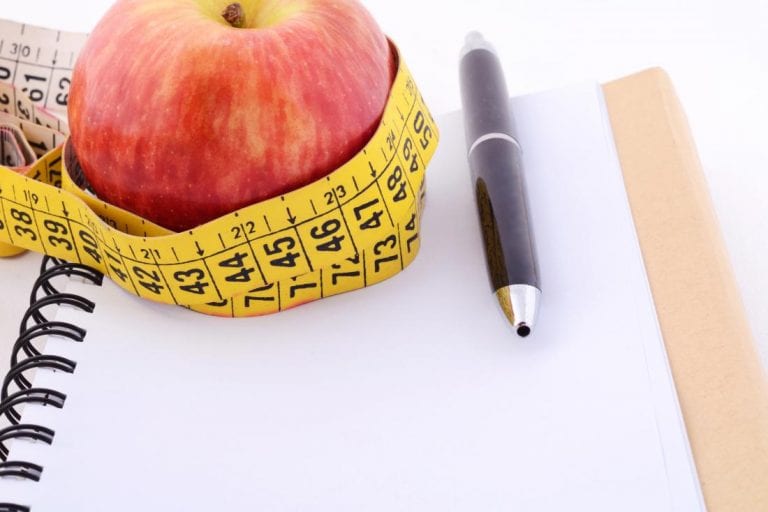Losing weight is a fundamental goal for many people, but it doesn’t always happen as fast as we would like. There are a variety of possible reasons why this may be the case, and in this blog post, we will explore a few of them. From genetic factors to environmental triggers, read on to discover what might be holding you back from reaching your weight loss goals.
And even if you don’t have any specific ideas about why you’re not losing weight as quickly as you’d like, these insights can help you start to address the root causes of your problem.

Source: elle.com
Contents
Why are you not losing weight?
There are a few possible reasons why you may not be losing weight as fast as you would like. Here are potential causes and how to address them:
- Not tracking your progress properly. Make sure to track everything from the number on the scale to the dress size you wear regularly. Not only will this help you stay motivated, but it will also provide valuable feedback that can help you make changes if necessary.
- You’re not eating enough calories. If you aren’t burning enough calories through activity, your body will turn to stored fat for energy instead of using the calories you’ve been eating. To ensure that you’re getting enough calories, make sure to track what you’re eating and carefully consider the nutritional content of your chosen foods.
- Not getting enough sleep. Sleep is essential for weight loss because it helps regulate blood sugar levels and maintains energy levels throughout the day. Most adults need at least seven hours of sleep per night in order to feel their best, so make sure to get adequate rest each night.
- No physical activity. Exercise not only helps you lose weight, but it can also improve your mood, mental health, and overall well-being. If you don’t currently have time for regular exercise, start by making small changes and gradually increase the amount of time spent exercising over the course of several weeks or months.
- Nutrient deficiency. If you’re not losing weight as fast as you would like, it may be because you’re not getting enough of certain key nutrients. Make sure to eat a balanced diet that includes plenty of fruits and vegetables along with lean protein and whole grains to ensure that you’re getting all the nutrients your body needs to function optimally. Some people choose supplements and weight loss pills to help them with the journey. They can be found at easna.org.
- Unhealthy lifestyle overall. If you’re obese or have other health concerns, your metabolism may be slower than it would be if you had better habits overall. Alcohol can also interfere with the way your body burns calories, leading to weight gain over time.

Source: Italianguide.com
Tips to help lose weight faster
Eliminate Sugar and Carbohydrates: One of the biggest culprits when it comes to weight loss is sugar and carbohydrates. Sugar spikes your blood sugar and then crashes, leading to cravings for more carbs. Cut out all processed foods, sugary drinks, and anything with added sugars. Replace them with healthy options like whole grains, fruits, and vegetables.
If you feel like you don’t have the time, preparing meals in a bulk is a great way to save time and stay on track. When you know what you’re going to eat for the week, it’s easier to resist the temptation of fast food or junk food. Make a grocery list and plan out your meals before you go shopping. This way, you’ll avoid buying unnecessary items and will have more room in your budget for fresh produce and protein sources.
Consume More Protein: Protein helps stabilize blood sugar levels and can help you burn fat more effectively. Aim for at least 8-10 g of protein per day (depending on your goals). Some good sources of protein include lean meats, poultry, seafood, eggs, legumes/peas/beans, soy products, low-fat dairy products, and tofu.
Get Moving: Regular exercise helps keep your metabolism running smoothly and can help you burn more calories throughout the day. Start by doing 30 minutes of moderate-intensity activity every day (such as walking or biking) before gradually increasing the time as your body becomes more used to the activity.

Source: self.com
Consider medical conditions
If you are overweight or have obesity, your body is more likely to store calories as fat rather than burn them off. This can make it very hard to lose weight even if you’re eating the right foods and exercising regularly. Other medical conditions that can cause weight gain include:
-A history of heart disease
-Diabetes
-High cholesterol levels
– Thyroid problems
Understand your motivation
One common reason for losing motivation is feeling like you’re not making any progress. This can be a sign that you’re fixated on the wrong goal or that you’re not taking the necessary steps to reach your goal. If this is happening to you, it’s important to set a realistic goal and break it down into manageable steps. Start by setting smaller goals, such as eating fewer calories each day or cutting back on your carbs for a week. As you progress, raise the bar and set lofty new goals that you hope to achieve by the end of your program. Be sure to share these goals with a trusted friend or family member so that they can support you along the way.
Another common reason for losing motivation is feeling like you’re struggling every day. This can be caused by one or more of the following: being overweight, having a difficult time exercising, eating unhealthy food, or having negative thoughts about your body. It’s important to find strategies to cope with these struggles and build new habits that will support your weight loss goals.
Finally, some people lose motivation because they don’t see results quickly enough. If this is happening to you, be realistic about your expectations and focus on taking small steps toward your goal instead of giving up prematurely. With patience and dedication, you’ll be able to see progress and stay motivated along the way!

Source: medicalnewstoday.com
Conclusion
If you’ve been struggling to lose weight for any amount of time, there is a good chance that you are not following a diet that is specifically tailored to your needs. While many diets offer solid advice on what to eat and how much, they often leave out key pieces of information about why you are overweight in the first place. If this sounds like you, then it’s time to take a closer look at the foods and activities that have contributed to your weight gain in the past. Once you have identified the underlying causes of your problem, taking action will be much easier.
